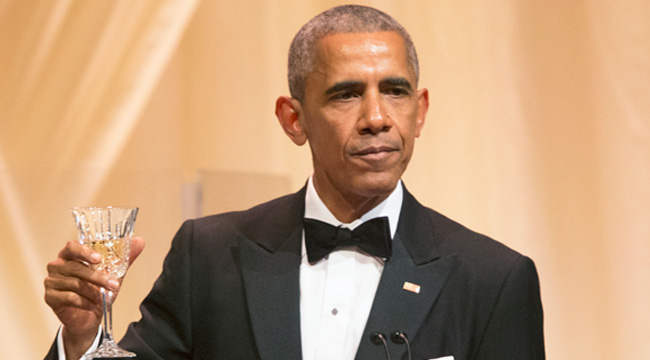
There may one day be a ticking time bomb buried deep in Russia’s digital infrastructure. Only a few people at the height of security clearance and confidentiality know where, or when, the cyber weapon could be deployed. It was one of President Obama’s final acts, inking authorization for the NSA, CIA and U.S. Cyber Command to develop “implants” that could give Russia a taste of their own medicine after they were found to have interfered in the U.S. election. However, it’s not known whether President Trump will ever take action, as Obama left the ultimate decision for him to make.
A new report from the Washington Post details the Obama administration’s struggle to effectively warn the U.S. public of Russian hackers lurking about in the voting systems of many states, not to mention the Wikileaks dump and DNC hack. Afraid it would look like he was leaping to Clinton’s defense, Obama tried to walk a fine line between stopping Russian efforts to hack the election, retaliating for what had already been done, and communicating to the American people that Trump’s claims the election was rigged were true — just not quite how the Republican candidate meant it.
Limited by partisan politics, afraid of jumping ahead while the government spooks finished their research, and above all concerned about making the situation worse by coming on too strong or too soon, Obama might have appeared hamstrung. But behind the scenes he was crafting a strong response to Russian infringement on U.S. sovereignty. Obama had something up his sleeve that the public couldn’t know about yet — a major cyber espionage project that would let Russia know the United States could reach as deep into Moscow as the Kremlin had into Washington.
“We will continue to take a variety of actions at a time and place of our choosing, some of which will not be publicized,” Obama said in a December, 2016 statement released by the White House.
While the CIA, NSA, and U.S. Cyber Command got started on Obama’s cyber weapon, operations started to let Moscow know the United States was watching. Like the submarines that occasionally surfaced off enemy shores during the Cold War as a reminder of proximity and reach, or like Russia’s recent penchant for buzzing U.S. ships and diplomats’ cars with various aircraft, the U.S. implanted code that was deep enough to be taken seriously, but relatively easy to find.
If it’s ever deployed, the cyber weapon would target networks “important to the adversary and that would cause them pain and discomfort if they were disrupted,” according to one anonymous official. It’s a long term project that by all accounts required Obama’s signature to get started, but now only needs the spooks to keep running the ball down the field. Unless President Trump calls a time out or countermands the project — which is possible, although sources say that Trump hasn’t done so yet — it’s only a question of how long it will take to reach the Russian end zone.
(Via Washington Post)
